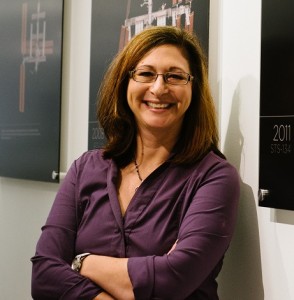October 6, 2015
Space: The Final Healthcare Frontier
Tuesday, October 6, 2015
7:00 pm
Duncan Hall – McMurtry Auditorium
Reception at 6:30 pm in the lobby in front of McMurtry
Dorit Donoviel, Ph.D.
Director, Biomedical Innovation Laboratory
Deputy Chief Scientist
The National Space Biomedical Research Institute (NSBRI)
Assistant Professor, Dept. of Pharmacology and Center for Space Medicine
Baylor College of Medicine
ABSTRACT
If you were a doctor in space on the way to Mars, how would you treat a painful kidney stone? How would you perform routine blood analyses on your patients? What would you do if one of your astronauts developed an excruciating headache and you suspected that there was increased pressure on the brain? What if you didn’t have the right medication to treat a respiratory infection that debilitated your entire crew?
Spaceflight presents many challenges (and opportunities) for administering healthcare in a harsh, remote, and resource-limited environment. For example, medical technologies developed for space must be portable, minimally invasive, and easy to use and maintain. Devices must be robust and preferably require low power and consumables. Medications must also be very stable and safe for long periods of time.
Medical products meeting these high standards for spaceflight have certain commercial advantages over analogous technologies developed only for Earth-based use. Recent medical advances developed for both Earth and space are enhancing terrestrial healthcare delivery. Examples include advanced diagnostic and therapeutic applications using ultrasound, revolutionary brain-health monitoring devices, and novel ways to treat glaucoma and other vision disorders. By setting the bar high and innovating for space we are driving breakthroughs in healthcare and creating new business opportunities on Earth.
BIO
As Deputy Chief Scientist, Dr. Donoviel oversees the diverse portfolio of science and technology research and development projects at NSBRI that address the challenges faced by humans in space. She leads the NSBRI Industry Forum and the SMARTCAP grant program that funds and mentors small startup companies. Dr. Donoviel is Director of the Laboratory for Biomedical Innovations where she evaluates new technologies and countermeasures that have the potential to transform medical care in space and on Earth.
A published scientist herself, Dr. Donoviel interfaces with NASA at many levels ensuring programmatic alignment with the highest risks to human space flight while safeguarding scientific excellence. She is the recipient of several NASA Human Research Program awards, and serves on advisory and review boards in the space life sciences both nationally and internationally.
Dr. Donoviel is an Assistant Professor in the Department of Pharmacology and a member of the Center for Space Medicine at Baylor College of Medicine, lecturing and mentoring medical students in space biomedical research.
Before joining NSBRI, Dr. Donoviel was engaged in pharmaceutical drug discovery at Lexicon Pharmaceuticals, a biotechnology company based in The Woodlands, Texas. For eight years, she managed a metabolism research group that identified and validated targets for drug discovery by using in-vivo functional genomics technology, and developed small molecule compounds, antibody, and protein therapeutics against these validated targets.



 Houston Spaceport
Houston Spaceport